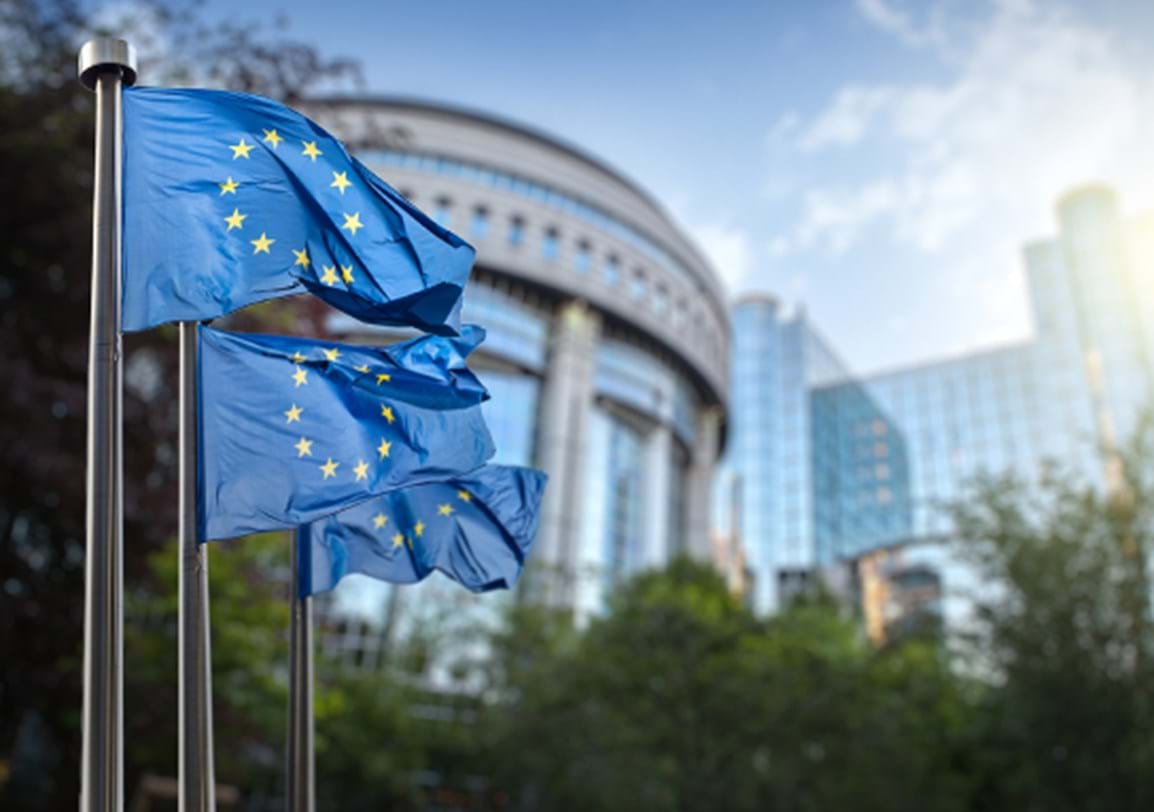
AI-generated videos of child sexual abuse a ‘stark vision of the future’
Real victims’ imagery used in highly realistic ‘deepfake’ AI-generated films

Published: Wed 23 Nov 2022
IWF joins call to focus on effective solutions in fight against child sexual abuse online
The Internet Watch Foundation (IWF) has added its voice to an open letter calling for action from all those in the European Union with a stake in protecting children online.
The letter, signed by more than 70 civil society and child rights organisations, applauds what has been done so far by child protection organisations and the tech industry, but emphasises that more must be done to strengthen the European’s Commission’s proposed legislation to tackle child sexual abuse online.
The letter says that advances in technology and law enforcement could provide the tools needed to eradicate child sexual abuse materials from online platforms in a manner that respects the privacy of internet users.
The full letter reads:
November 18, 2022 - European Day on the Protection of Children against Sexual
Exploitation and Sexual Abuse
Every child should have the chance to be safe, curious, and happy – to simply be a kid. Unfortunately, the
reality of childhood is very different for a growing number of children who experience sexual abuse and
exploitation. Recent surveys show than more than half of children, both boys and girls, experience sexual
harms online during childhood. This includes being sent being sent sexually explicit content from an
adult or unknown persons, being asked to keep part of their sexually explicit online relationship a secret,
having sexually explicit images of them shared without their consent or being asked to do something
sexually explicit online they were uncomfortable with. In extreme cases, grooming for child sexual
exploitation may lead to child disappearances.
The horrors of abuse are cruel enough. But as the internet has evolved and grown, so has the viral
spread of child sexual abuse materials, and the evidence of that abuse: 85 million of images and videos
were reported globally in 2021 – with Europe hosting over 62% of this material. This material is often
re-shared multiple times online, with children being re-victimised over and over.
The proliferation of abuse materials makes it hard for those children to live normal and healthy lives. In a
survey conducted in 2017, nearly 70% of respondents indicated they worry constantly about being
recognised by someone who has seen images of their abuse, 83 had suicidal ideation, 60% attempted
suicide.
The spread of child sexual abuse material is not the only harm that children experience as a result of
their abuse. For example, chat functions allow perpetrators to groom children online, either to meet in
real life or to solicit sexually explicit imagery from them and extort them with it afterwards to
continuously provide more. And livestream technology is used to stream the abuse of children while
criminals watch and guide the abuse from around the globe.
Every single day, children’s rights to protection from sexual abuse and exploitation are violated.
Overwhelming as this may seem, we are far from powerless to act. And we have a moral as well as
legal responsibility to stop this heinous crime, as recognised by the United Nations Convention on the Rights of the Child. Today, on the European Day on the Protection of Children against Sexual
Exploitation and Sexual Abuse, we want to explain why this moment is so critical for Europe and the world.
We are not helpless. Advances in technology and law enforcement, along with a strong child protection
ecosystem, could provide the tools we need to eradicate child sexual abuse materials from online
platforms. All of this could be applied proportionately, with strictly regulated technologies that respect
the privacy of internet users.
What has been done to date by the entire child protection ecosystem, including technology companies,
merits applause. All voluntary actions must be continued with a solid legal basis and regulatory
framework. But, when looking at the exponentially growing scope of the problem, it’s clear that this
won’t be enough. The European Union must live up to its promise to make the internet a safe place for children.
Earlier this year, the European Commission proposed legislation to do exactly that. This legislation is
currently being reviewed and considered in the European Parliament and by Member States in the
Council of the European Union. We, the signatories of this letter, thank all parties involved for their hard
work and high ambitions. This is an opportunity that EU policy-makers can’t afford to miss. Citizens
across the EU have expressed widespread support (68%) for the EU to introduce long-term legislation
that will keep children safe online and for the use of automated tools to identify child sexual abuse
materials. We call on everyone with a stake in fighting this problem to concentrate on effective
solutions to strengthen the Commission’s proposal and ensure it brings tangible outcomes for child protection online - read our concrete recommendations below*.
We all bring different expertise to the table. Together, we can find solutions that will help us build a
world where children can be safe, curious, and happy – one in which every child is free to simply be a
child.
List of signatories:
* Read our priority areas of support and concerns regarding the European Commission’s proposal:

Real victims’ imagery used in highly realistic ‘deepfake’ AI-generated films